03. Some Radishes are More Equal than Others
Pains of a generation seen through Jackson Yee's recruitment controversy
Hi there. Welcome to Active Faults.
We looked at how megacorps and consumerist logic seep into fanquan last time. I’m attempting the impossible today: cramming class, gender and freedom of speech struggles into one issue.
Fasten your seatbelts.
Rice Bowls
Midnight, January 23rd. Stand-up comedian Yang Li posted this on Weibo:
“Why is Full River Red like this? Why is it so good! And interesting as well. It’s been years [since I’ve felt like this] and I no longer expect to walk out of the cinema feeling entertained, but this made me happy. Go watch it!”
The film in question, directed by the current official court jester Zhang Yimou, is a comedy thriller that delivers exactly what its title promises - red-tinted political theatre. It’s a distant relative of Wolf Warrior with the same kind of predictable character arc, tedious cinematography and contrived screenplay to arouse nationalistic impulses.
And like most propaganda films in recent years, Full River Red is studded with extremely red stars. Its almost all-male cast (surprise, surprise) features China’s youngest actor to have grossed over 10 billion yuan in box office revenue, Jackson Yee.
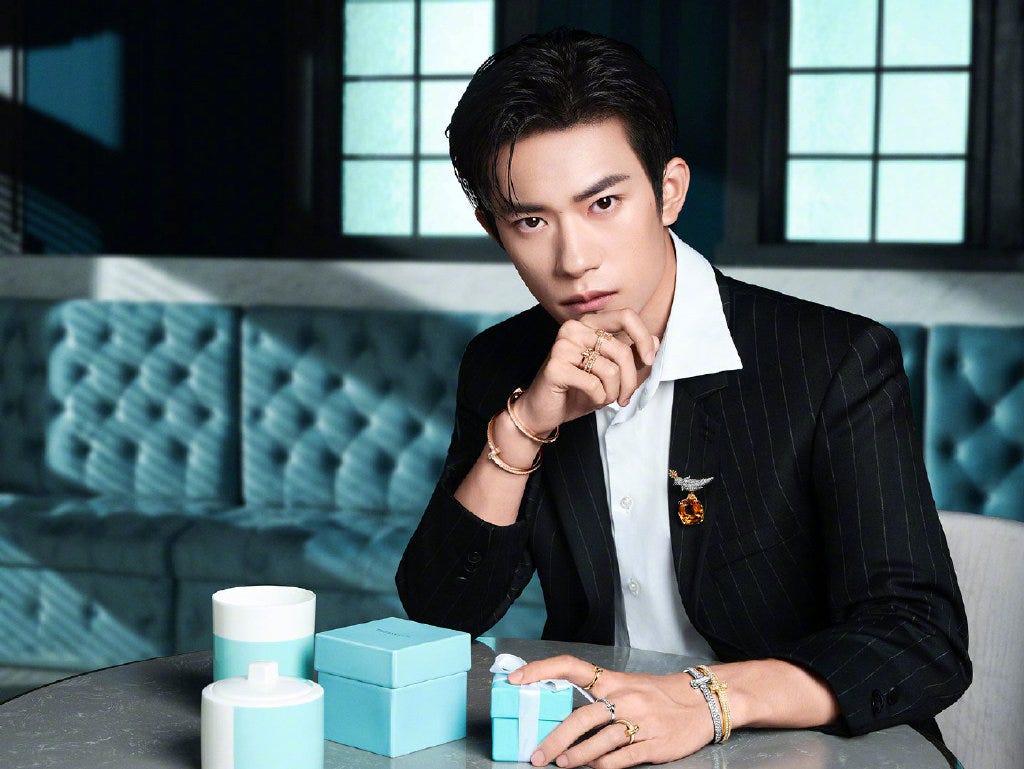
Disclaimer: Yee is no ordinary celebrity. He’s the nation’s first generation of “fostered idols” (养成系偶像), teenage yet-to-be idols appealing for the figurative and literal (financial) fostering by fans.1 He debuted in the boy idol group “TF Boys” at the age of 13 and accumulated an enormous following since then, quite literally raised by his 90 million fans-consumer-parents in the past decade. He rebranded himself as an actor in 2018 with the Oscar nominee Better Days, and has been virtually unrivalled in the industry regarding traffic, revenue and reputation.
Until he decided to job-hunt.
Last summer, the National Theatre of China released their recruitment list and Yee’s among the new employees. As a public institute run by the Ministry of Culture and Tourism, the post offered at NTC comes with bianzhi (编制, roughly translated to “establishment of posts” by this paper) meaning that it is government-funded and lifelong. It’s an iron rice bowl with housing subsidies, public welfare benefits, secure pay, no competition and stability.
For one of the richest celebrities in China to take up a government-backed job is a sign that the civil service craze is real. In 2022, a record-breaking 2.2 million people registered for the national exams (国考), the exams you’d take if you want to become a civil servant (Tencent News, 2022). The registration-to-admission ratio was 68:1, and the tests have always been notoriously impossible to pass. What Yee applied for is different, but nonetheless competitive. Bianzhi owners are not government officials but might work in government-affiliated agencies like NTC, receiving similar benefits like guaranteed pensions. Both routes lead to a certainty that no other career opportunities can promise, especially in the midst of the stagnant economy and skyrocketing youth unemployment rate.
One Bloomberg article wrote that people “greeted” Yee’s decision as he can’t be blamed for wanting stability. This can’t be any further from the truth, because people furiously argued that Yee already had a diamond rice bowl. Statistics estimate that Yee made 20 million yuan from the Battle at Lake Changjin alone.
In reality, public shunning ensued. The criticism was coming from multiple angles. Initially, enraged netizens were shocked - how can a 21-year-old billionaire helicopter into the boxing ring and snatch the cake that millions are clawing their way towards? He was bitterly called, and is to this day, a loathsome “208”. The reference originates from the salary scandal of the actress Zheng Shuang, who was reportedly paid 160 million yuan for her role in a film that she shot for 77 days. A bit of calculation gives an astonishing daily salary of 2.08 million. “208” then became a derogatory term for celebrities, especially traffic idols, who earn too much and work too little.
Radishes and Small Town Swots
Netizens later found that Yee, alongside two other male celebrity recruits Hu Xianxu and Luo Yizhou, may have got the position despite being ineligible to apply. People challenged whether the trio qualify as unemployed individuals, a mandatory condition to meet in order to enter the selection process. Some ask a forceful question: If they were never employed, were they not contractually bound when they filmed their blockbusters and never taxed for their income?
This is where it goes beyond the usual despise of the rich. Some Weibo users have inspected the trio’s locations on the dates of the tests (conveniently outed by Weibo) and found inconsistencies. People suspected that they passed the test without even attending them. More and more loopholes surfaced as firsthand accounts of test attendees claimed that the trio were no-shows, and no online tests were allowed (Hu Xianxu later said an online test was miraculously arranged for him, because he was COVID-stuck in a different city).

From then onwards, the trio are collectively known as the “radishes”. This is based on the saying “one radish, one pit”, in reference to the phenomenon of “tailor-made recruitment” where the winning candidate is predetermined to fit a certain post. The public questioned whether celebrity privilege had swayed the selection process and three of the pits were already locked in by Yee and his uni roommates.
To make matters worse for Yee, China Newsweek, while defending Yee, brought the concept of the “small-town swots” (小镇做题家) into the discussion2. Coined by a Douban user, the slang refers to hard-working students from disadvantaged backgrounds striving for upward mobility by acing exams. The word was used in self-mockery and didn’t have a negative connotation back then, but Newsweek used it in contempt.
“Perhaps [the criticism of Yee] stems from a sense of deprivation…these small-town swots go to classes and do question papers every day, but they still can't win the position that would give them a sense of security. So when they see stars getting paychecks and still end up calling dibs on bianzhi, they always feel robbed of their pit. But it is an illusion where one seems to think that their income is low because the star has robbed their slice of the cake.” 3
Even Hu Xijin was smart enough to say that Yee should give up the job and he did. Yee buckled, but the damage is done. The article escalates the struggle to one between the privileged and the masses, and I haven’t seen one of this scale in a long time. The hashtags of this controversy attracted over 2 billion views. The internet rallied against the unfairness of it all, and it’s clear that Newsweek misses the point, perhaps deliberately. People are not angry at Yee - he’s the frontage for a f*cked up system.
Zhihu user @寻尘志 rightly comments that this busted the myth of meritocracy. People were told to study hard until there were no alternative ways of living left, and yet the privileged are born on the other side of the finish line. While millions are unwillingly trudging on a plank bridge to cross the river, someone drives by on a yacht and drenches everyone with the waves.
The attack on Yee is a political protest, a proxy war on poor governance.
This would explain the platform-wide censorship surrounding the Yee controversy. Weibo posts expressing dislike of him and vehemence towards this injustice got taken down. Yet again, the government successfully obscures itself behind the frontage. The public now thinks the platform protects Yee and associates him with the power of cracking down on popular opinion. They define fans of Yee as his minions in defence of him and besmear fanquan as lacking a moral compass. People are, again, protesting with the wrong target in mind. The response is a still ongoing boycott of Prince Yee (yet another nickname to ridicule his privilege), including his latest film Full River Red.
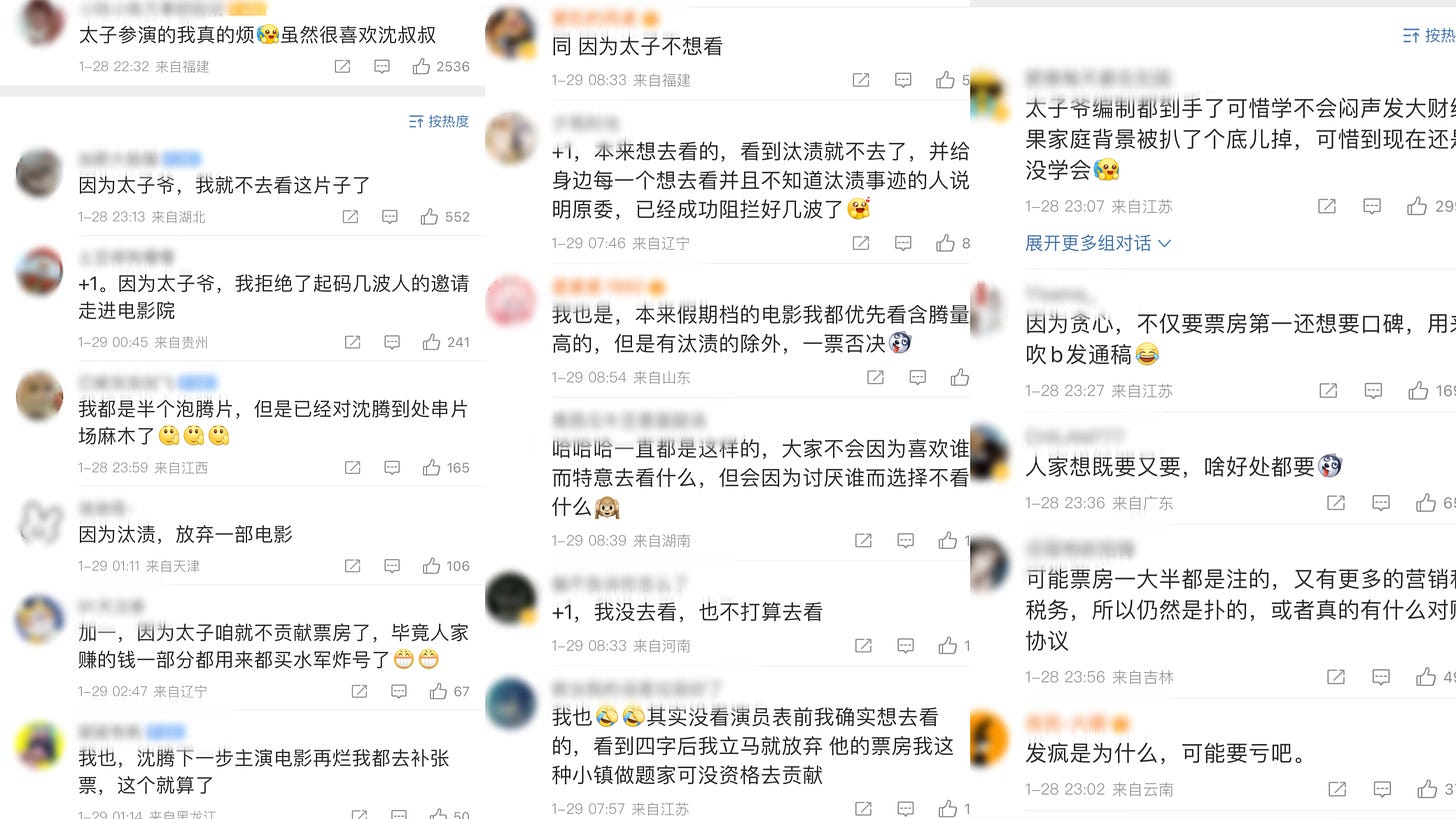
Women Speaking
So. We’ve come full circle. Yang Li’s innocent, minding-one’s-own-business film review was seen as supporting the privileged who are meddling with everyone’s business. The next morning, Yang Li is high on Weibo’s Hot Topics as followers condemn the enthusiasm.
And who’s Yang Li? She’s the nation’s first female stand-up act to call out mansplaining and toxic masculinity, before receiving death threats because of it. Her punchline “most men are too average and too confident” gives rise to the modern-day synonym of diaosi - pu xin nan, “aver-dent” guys (普信男). To me, her work is not even half as confrontational or subversive as, say, Nanette or Baby Cobra. Apparently, it’s still too much for the male users who attack her relentlessly.
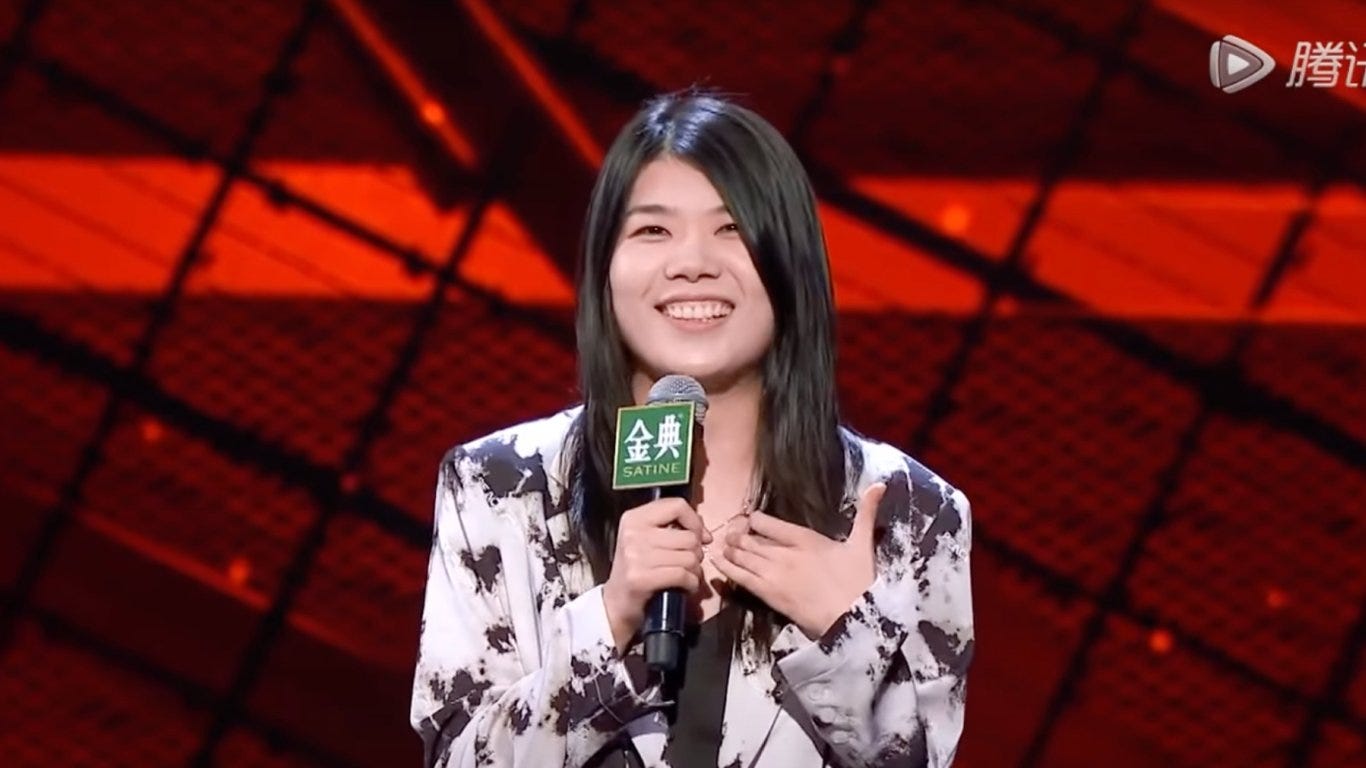
Speaking about Full River Red has somehow breached a bond of trust between her and her largely female fans too. She’s long been hailed as a “feminist” vanguard when she hasn’t explicitly identified herself as such, and is unjustly expected by some to stand up against evil men at all times and costs. Some argue that Yang is too positive about an all-male cast, the misogynistic portrayal of minor female roles and various crude innuendos deemed inappropriate for a feminist to praise. It’s so rare to see vocal opinion leaders supporting women in any remote ways, and it’s a shame that she “betrayed” the community. Her review sounds like a sponsored ad and, as a public figure, is also a 208. Her “alliance” with Yee shows how “class overrides gender”. She exploits the support of her female audience and backstabs them when profit is in the equation.
Others highlight how Yang is applauding the film per se and not Yee. Her support should not be interpreted as aiding and abetting the privileged or as anti-feminist. It is also lamented that a woman is always at fault for whatever position she takes and calls for unification instead of division within the female community. Many attribute their boycott to anti-privilege reasons and would rather dissociate the film from the gender debate altogether.
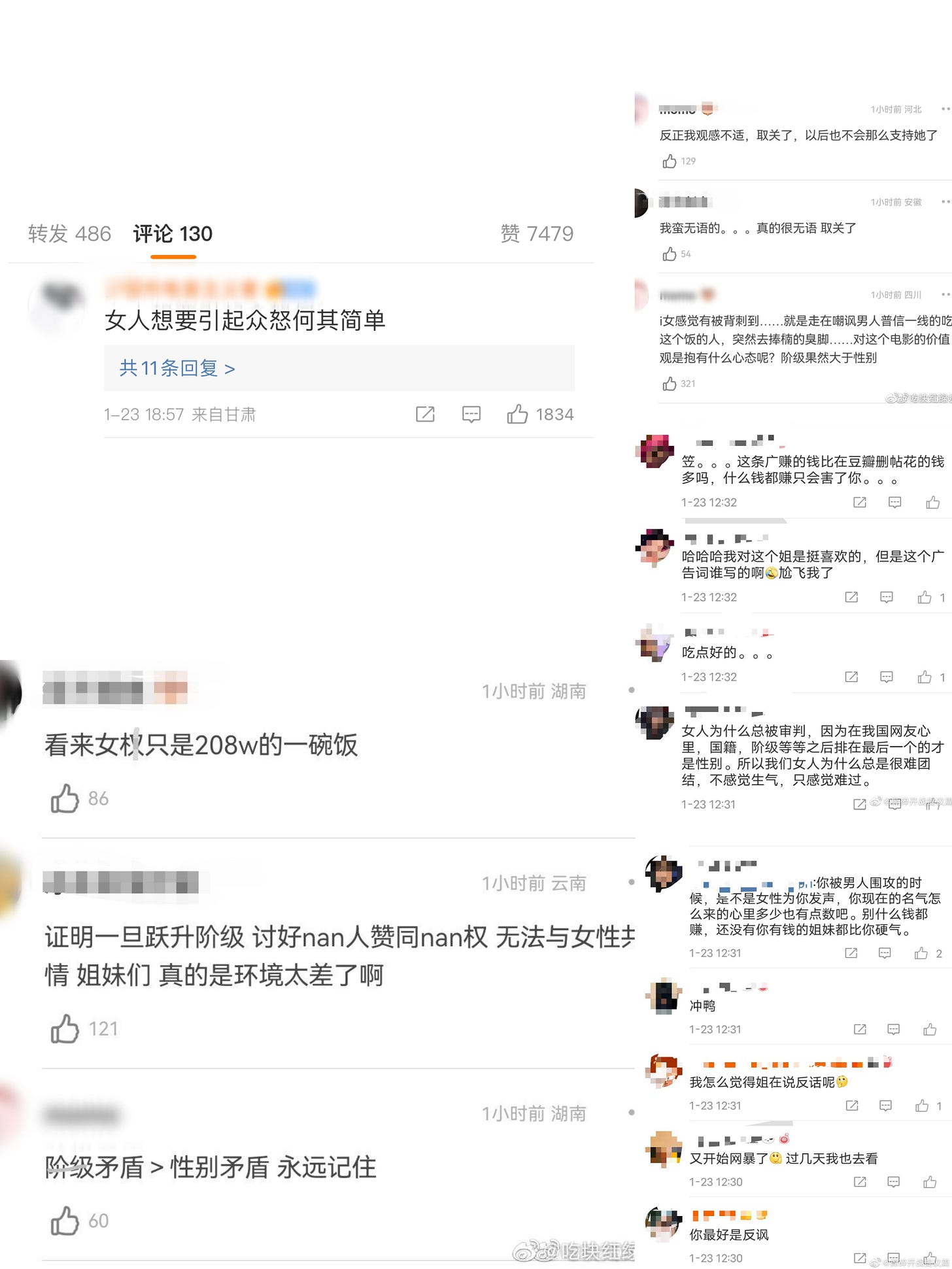
This is but a fraction of the complexity that characterises fanquan debates. We see how entertainment exists not in a depoliticized and desocialized vacuum but is very much entangled within an unhappy marriage of the people and the state. Gender increasingly looms over this entanglement like a garden sprinkler, prodding the debates into another dimension.
I’ve left out Yee’s fanbase and their reaction towards the controversy on purpose because it deserves a separate issue. Next time, I want to use them as a prompt to talk about an important question: ethics in fandom and fans’ negotiation of the fan identity, especially in times of publicity crises.
See you then!
The few existing academic papers on fostered idols use the term in a very broad sense, incorporating xuanxiu idols as well. My take is that there’s still a subtle difference. Yes xuanxiu also involves the fans in the active creation and fostering of idols but it’s framed around a broadcast schedule. The fostering is only temporary, and idol trainees tend to be much older than fostered idols. In a way, xiufen have the mindset of the transition home between shelter and permanent adoption. For proper fostered idols like TF boys, the fans are much more committed and are in it for the long haul like real parents, making an “investment” in a potential star and betting on their future success.





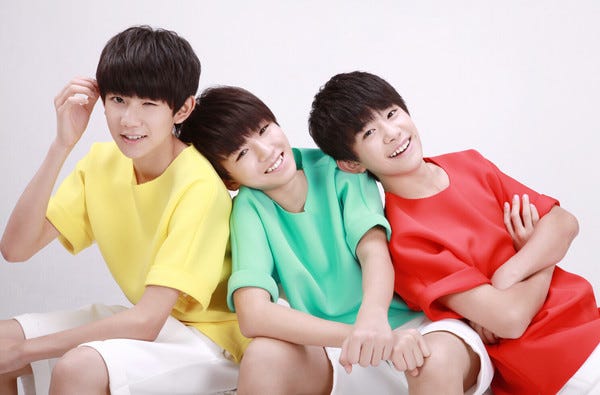
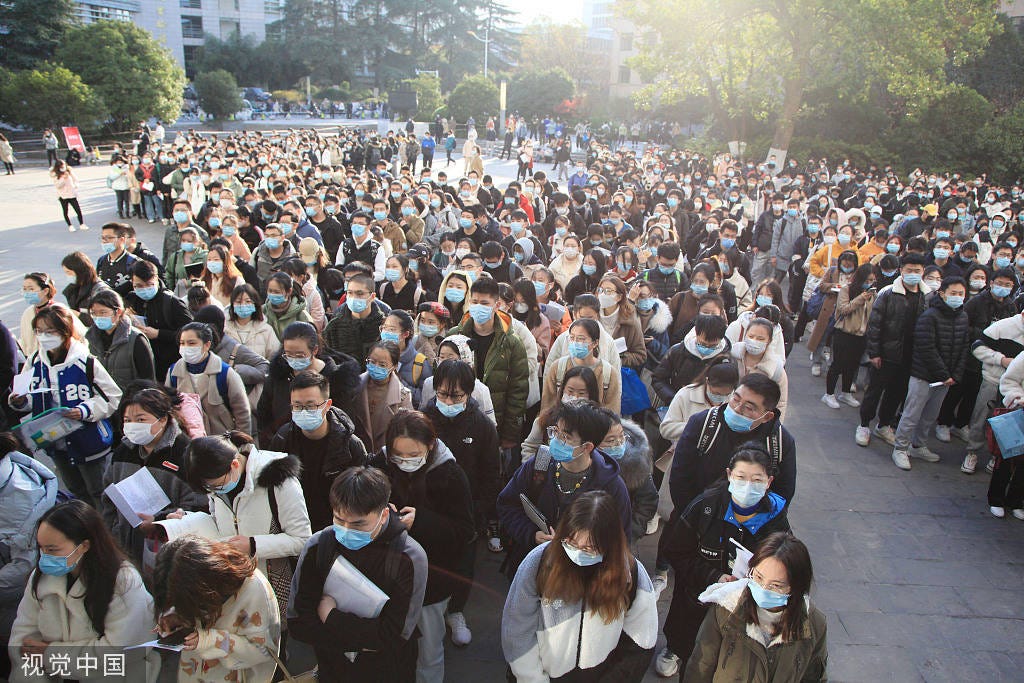
Has any evidence surfaced that it was in fact a sponsored ad?